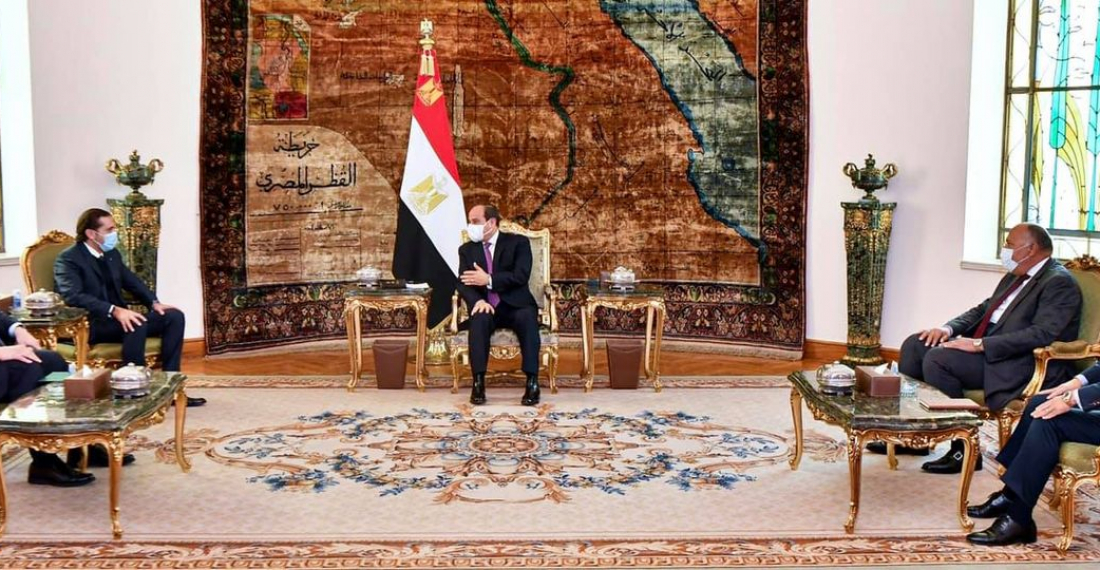Lebanese Prime Minister-designate Saad al Hariri has been in Egypt this week, in a bid to help form a new government and end Lebanon's multifaceted crisis.
In Cairo, Al Hariri met yesterday with Egyptian President Abdel Fattah El Sisi, Foreign Minister Sameh Shoukry, and General Intelligence Chief Abbas Kamel.
According to a statement from Al Hariri's office, the top officials covered the bilateral relations and the current situation in Lebanon.
President El Sisi highlighted Egypt’s keenness to preserve the capacity of the Lebanese state and affirmed the importance of helping Lebanon out of its current difficult situation. He noted that this will take place once all Lebanese leaders uphold the national interest while settling disputes, and accelerating efforts to form an independent government capable of dealing with the current challenges.
El Sisi also stressed Egypt’s readiness to provide support and assistance to overcome the crises that Lebanon is facing. This relates particularly to those caused by the August 2020 Beirut Port explosion, and the ongoing novel coronavirus (COVID-19) pandemic.
For his part, Al Hariri affirmed Lebanon’s pride in its close historical relations with Egypt, which are based on solidarity and brotherhood. He expressed his country’s appreciation for the Egyptian efforts in supporting Lebanon in all fields, especially in providing aid and assistance in the aftermath of the Beirut Port incident.
As per a statement from the Egyptian Foreign Ministry, the Egyptian officials affirmed the fixed stance towards supporting the security and stability of Lebanon and backing its endeavors aimed at overcoming current challenges.
The goal is to achieve stability, advance development, and preserve the capabilities of the brotherly people of Lebanon. The leaders also stressed the importance of upholding the supreme national interest of Lebanon in order to get out of the current deadlock within the framework of commitment to the Lebanese constitution which requires accelerating efforts to form an independent government capable of dealing with the requirements of the future that the Lebanese people seek.
Hariri expressed appreciation for the efforts deployed by Egypt to harness international support to Lebanon at this stage.
Lebanon has only a caretaker government at present. The previous government led by Hasan Diab resigned six days after the Beirut port explosion in August. Since then, the country's political forces have failed to agree on the formation of a new government.
Former MP Mustafa Allouch, a member of the Future Movement led by Hariri, told the newspaper Arab News that attempts to form a government were being blocked by Gebran Bassil, leader of the Free Patriotic Movement.
“There is an explicit insistence … on including members of the FPM in the new government, and a total rejection of independents.”
He said Al Hariri “does not mind making concessions if this would lead to an effective government, but the government Bassil has in mind will be worse than all the ones before.”
Al Hariri has pledged to quickly form a new government of specialists that would enact reforms and stop the country’s economic collapse.
Al Hariri will now visit Paris for talks with French President Emmanuel Macron, who has proposed a non-sectarian Lebanese government of experts and technocrats to launch political and economic reforms.






